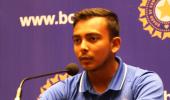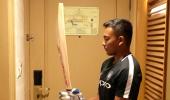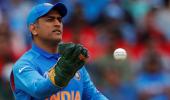The world has been witness to many sports stars who have been caught and subsquently punished for using drugs. Among them, most recently, is Prithvi Shaw, who has been handed a back-dated eight-month suspension for a doping violation after ingesting a prohibited substance Terbutaline.
The BCCI said Shaw, who made his Test debut last year, admitted to the Anti-Doping Rule Violation (ADRV) but the 19-year-old asserted that it was 'inadvertent', ingesting the substance when he had used an over-the-counter cough syrup.
A look at the cricketers who were punished for drug related offences:
Yusuf Pathan
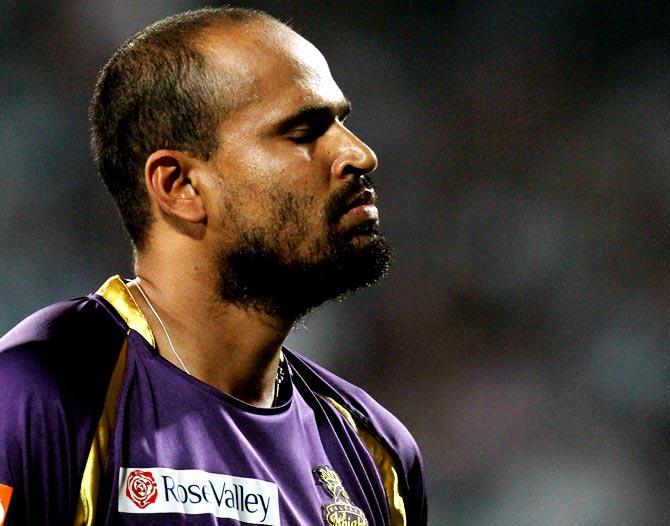
Former India all-rounder Yusuf Pathan was handed a five-month retrospective suspension for failing a dope test, a sanction which will end on January 14 2018, after the Board of Control for Cricket in India accepted that the violation was inadvertent.
"Mr Yusuf Pathan has been suspended for a doping violation. Mr Pathan had inadvertently ingested a prohibited substance, which can be commonly found in cough syrups," the BCCI had said in a statement.
The 36-year-old Pathan had provided a urine sample as part of the BCCI's anti-doping testing program during a domestic T20 competition on March 16 last year 2017.
"His sample was subsequently tested and found to contain Terbutaline. Terbutaline, a specified substance, is prohibited both In and Out of Competition in the WADA Prohibited List of Substances," BCCI added.
Ahmed Shehzad
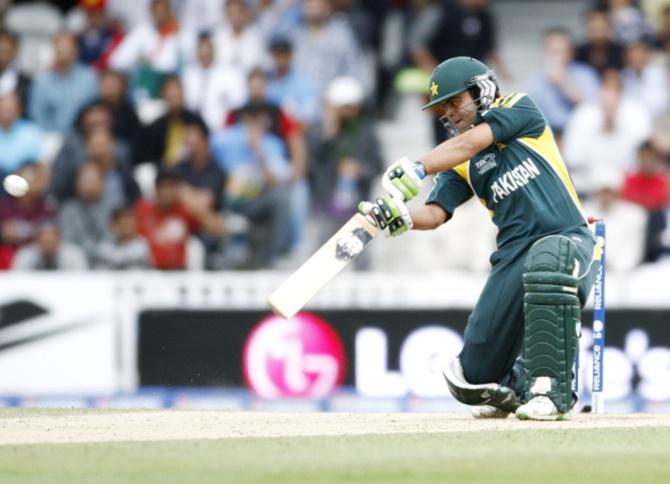
Pakistan batsman Ahmed Shehzad was banned for four months for violating anti-doping regulations after he tested positive for a prohibited substance in May 2018. The PCB provisionally suspended Shehzad in July after his in-competition urine sample collected during the Pakistan Cup domestic tournament had tested positive.
The board said the 26-year-old accepted that he committed the violations but had no intention to cheat or enhance his performance.
The statement did not specify the substance for which Shehzad had tested positive.
As a part of his rehabilitation process, Shehzad also had to deliver lectures on anti-doping as and when the PCB required.
Mohammad Asif
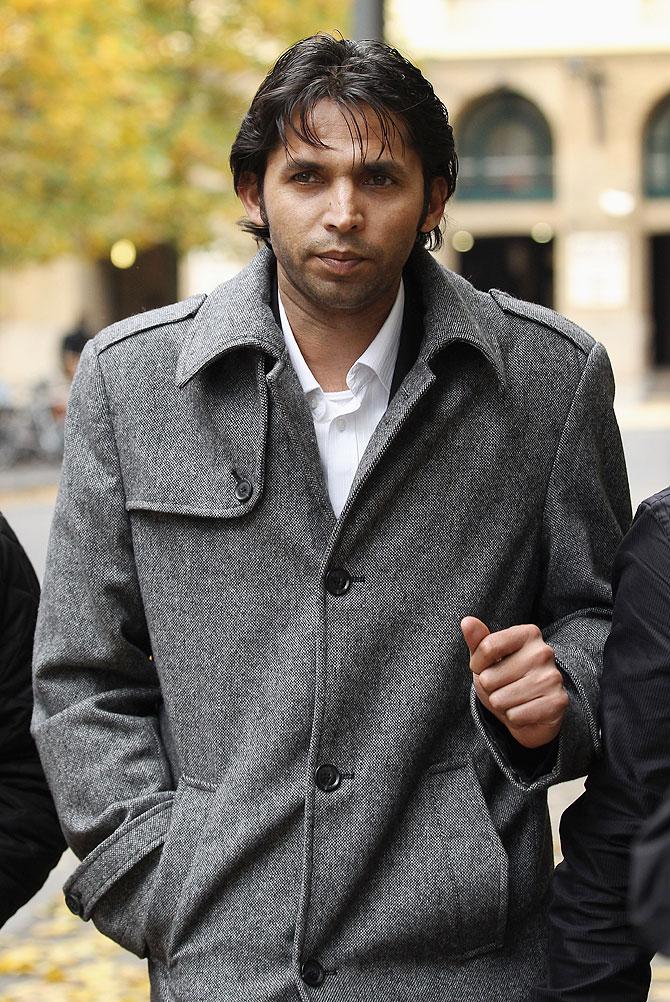
In 2008, Pakistan pace bowler Mohammad Asif failed a doping test because he had a banned substance during the tournament that year. Asif was also involved in a drug-related controversy during the Champions Trophy 2006 for taking nandrolone -- an androgen and anabolic steroid for which he was banned for a year but that decision was later reversed.
Pakistan pacer Mohammad Asif was handed a one-year ban by the Indian Premier League Drugs Tribunal for failing a dope test during the inaugural edition of the tournament in 2008, while playing for Delhi Daredevils.
After finding the 26-year-old fast bowler guilty of violating the anti-doping code, the IPL Drug Tribunal, chaired by legal expert Shirish Gupte made the formal announcement.
Apart from Gupte, the tribunal also comprised former Vice Chancellor of MUHS, Ravi Bapat, and former India captain Sunil Gavaskar.
Asif, who was already been banned by the Pakistan Cricket Board, told the tribunal he unknowingly took the substance which was present in an eye drop that he was using for allergy.
The former pacer also had a series of run-ins with controversies and was detained at the Dubai airport for 19 days in June 2008 with 0.24 grams of opium in his possession when returning home after playing in the IPL.
Shoaib Akhtar
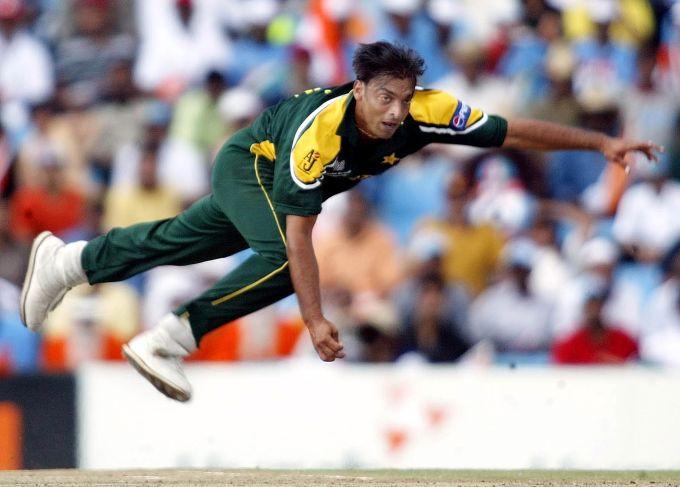
Pakistan's pacemen Shoaib Akhtar along with Asif tested positive for performance enhancing drug tests prior to their opening match in the 2006 Champions Trophy against Sri Lanka in Jaipur, following which both were withdrawn from the squad and sent back home.
However, the duo were later cleared by an appeal panel.
World Anti-Doping Agency challenged PCB's decision to lift bans on fast bowlers Akhtar and Asif by taking the case to the Court of Arbitration for Sport, an appeal which was also supported by the ICC.
However, in July 2007, the Court of Arbitration for Sport dropped the case, ruling it had no jurisdiction to challenge PCB's ruling.
Shane Warne
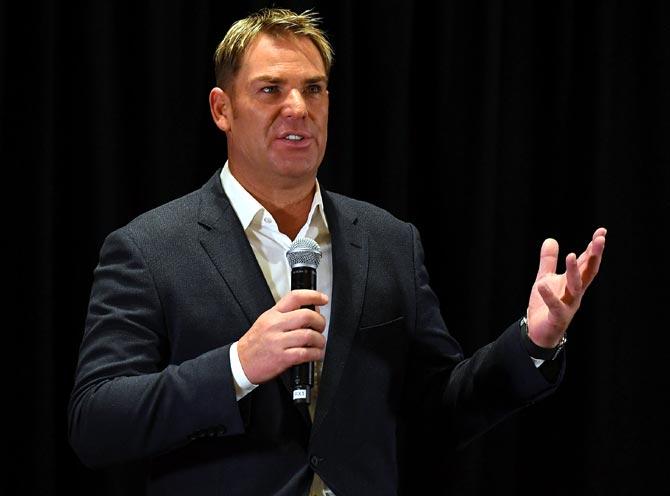
Australia's spin great Shane Warne was suspended for 12 months in 2003 prior to the start of the World Cup, after he tested positive for a banned diuretic.
Warne initially claimed that he took only one of what he called a "fluid tablet" -- the prescription drug Moduretic -- on his mother's suggestion, in an attempt to improve his appearance.
He claimed ignorance of the banned nature and tablet he took, as well as much of the drug policy of the Australian Cricket Board despite extensive briefings on the matter in the past.
Charged with using "a prohibited method to enhance performance", he was imposed a one-year ban.
It was further revealed, and confirmed by Warne in a subsequent television interview, that he had actually taken two of the pills.
Warne's testimony, and that of his mother, was described by the panel as "vague and inconsistent".
The panel decided against imposing the full two-year ban because the drug would have had no performance-enhancing effect, there was no evidence that Warne used the diuretic to mask steroid use, and medical opinion stated that steroids would not have enhanced Warne's recovery from a shoulder injury he had suffered several weeks earlier, or assisted his game in any case.
Yasir Shah
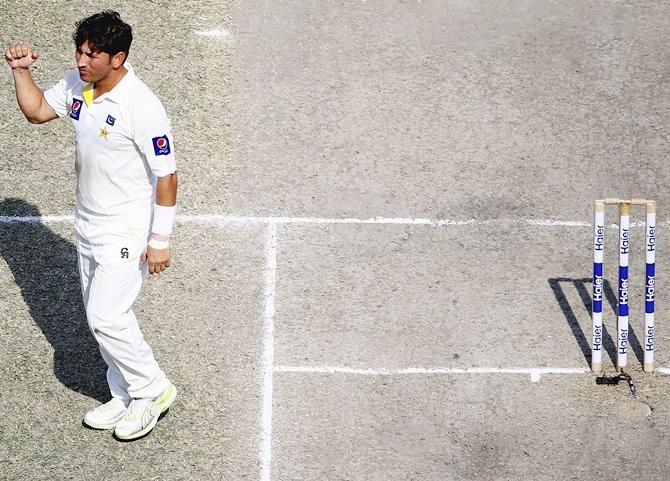
The International Cricket Council provisionally suspended Pakistan spinner Yasir Shah after he flunked a dope test conducted in 2015 during the ODI series against England.
"The International Cricket Council (ICC) announced that Pakistan's bowler Yasir Shah has been charged with an anti-doping rule violation under the ICC Anti-Doping Code," the world body said in a statement.
The sample of the Pakistani leg-spinner provided in an in-competition test, which was conducted on November 13 2015, was found to contain the presence of chlortalidone, a Prohibited Substance which appears in Section 5 of the WADA Prohibited List (in the category of Specified Substances).
The player was also banned from Asia Cup and ICC World T20.
Pradeep Sangwan
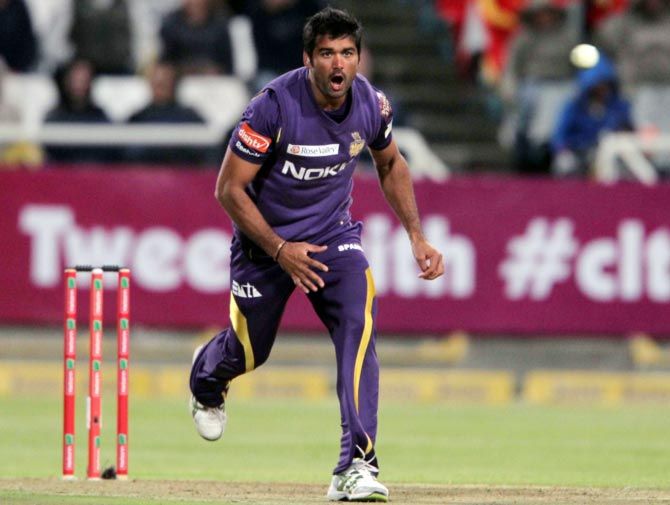
In 2013, Kolkata Knight Riders pacer Pradeep Sangwan was slapped with an 18-month ban from cricket after being found guilty of consuming a banned anabolic steroid by the BCCI's Anti-Doping Tribunal.
The 24-year-old, who was part of India's World Cup-winning Under-19 team in 2008, was banned for use of a prohibited substance during the sixth edition of the IPL in 2013.
Sangwan was the first Indian professional cricketer to be banned after he had tested positive for stanozolol -- a prohibited steroid -- which was found in his urine sample.
He returned to competitive cricket in November 2014 after serving out his ban.
Stephen Fleming
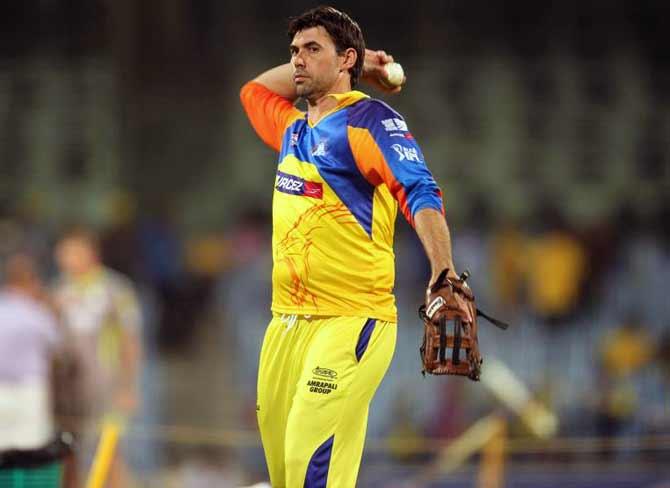
Former New Zealand skipper Stephen Fleming is known for his cool behaviour on and off the field.
It was a bit shocking to hear that Fleming was also involved in doping. He was not found guilty of using performance-enhancing drugs, but he was charged with smoking pot along with a few other Kiwi players involving Dion Nash and Matthew Hart. This incident dates back to an incident in South Africa in December 1994 and it was reported to the team management by pacer Danny Morrison who was a part of the tour.
Severe fines were imposed on the trio and they were banned from the remaining leg of the tour, while being fined $175. Fleming also admitted that he had lost his sponsorship after the incident.
Upul Tharanga

Sri Lanka opener Upul Tharanga failed a random dope test conducted during the 2011 World Cup and was banned for six months.
Tharanga tested positive for banned substance prednisolone -- a drug for asthma, which he is said to suffer. He became the first Sri Lankan cricketer to fail a dope test.
He said that a well-known medical practitioner, who had treated Indian stars Sachin Tendulkar, Gautam Gambhir and Ashish Nehra, prescribed medicine containing the banned substance.
"We recognise that Upul has not been found guilty of deliberately cheating, but the ICC maintains its zero-tolerance approach towards doping for the benefit of all its stakeholders," Haroon Lorgat, ICC chief executive had said.
Ian Botham
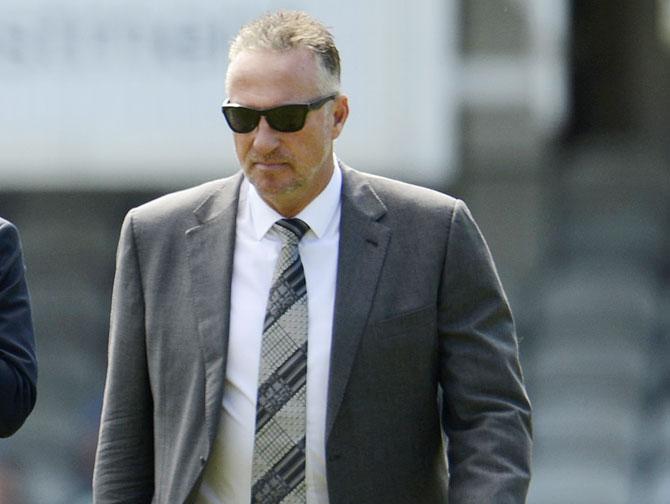
Former England player Ian Botham, was banned from the game in 1989, after being found guilty of smoking cannabis.
He was banned for 63 days for bringing the game into disrepute.

